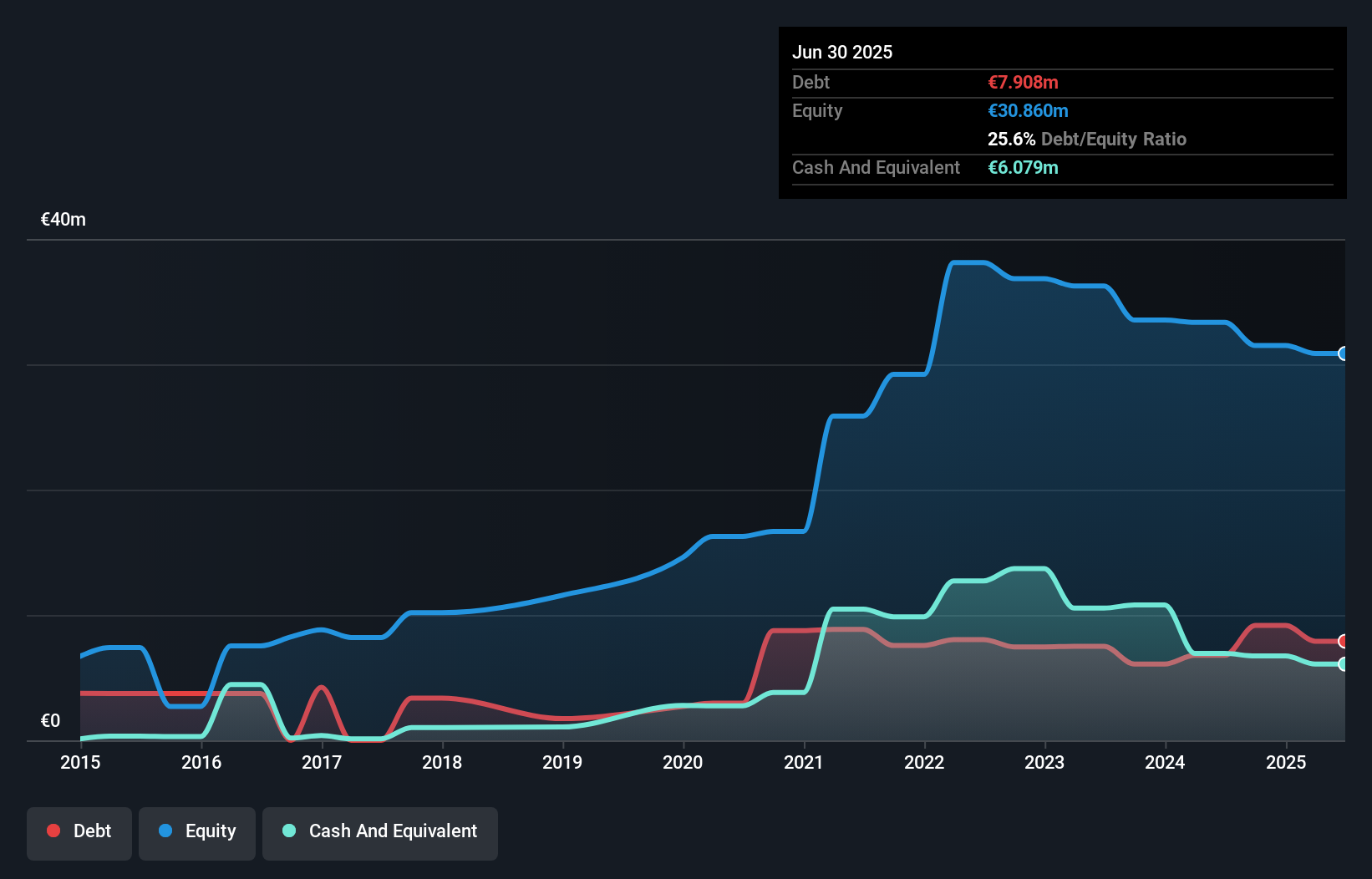The external fund manager backed by Berkshire Hathaway's Charlie Munger, Li Lu, makes no bones about it when he says 'The biggest investment risk is not the volatility of prices, but whether you will suffer a permanent loss of capital.' So it might be obvious that you need to consider debt, when you think about how risky any given stock is, because too much debt can sink a company. We note that SBF AG (FRA:CY1K) does have debt on its balance sheet. But should shareholders be worried about its use of debt?
What Risk Does Debt Bring?
Debt is a tool to help businesses grow, but if a business is incapable of paying off its lenders, then it exists at their mercy. Ultimately, if the company can't fulfill its legal obligations to repay debt, shareholders could walk away with nothing. However, a more usual (but still expensive) situation is where a company must dilute shareholders at a cheap share price simply to get debt under control. Having said that, the most common situation is where a company manages its debt reasonably well - and to its own advantage. The first step when considering a company's debt levels is to consider its cash and debt together.
How Much Debt Does SBF Carry?
The image below, which you can click on for greater detail, shows that at June 2025 SBF had debt of €7.91m, up from €6.78m in one year. On the flip side, it has €6.08m in cash leading to net debt of about €1.83m.

How Strong Is SBF's Balance Sheet?
We can see from the most recent balance sheet that SBF had liabilities of €3.49m falling due within a year, and liabilities of €12.2m due beyond that. Offsetting this, it had €6.08m in cash and €3.01m in receivables that were due within 12 months. So its liabilities outweigh the sum of its cash and (near-term) receivables by €6.57m.
Since publicly traded SBF shares are worth a total of €59.7m, it seems unlikely that this level of liabilities would be a major threat. However, we do think it is worth keeping an eye on its balance sheet strength, as it may change over time. There's no doubt that we learn most about debt from the balance sheet. But ultimately the future profitability of the business will decide if SBF can strengthen its balance sheet over time. So if you're focused on the future you can check out this free report showing analyst profit forecasts.
Check out our latest analysis for SBF
Over 12 months, SBF reported revenue of €46m, which is a gain of 15%, although it did not report any earnings before interest and tax. That rate of growth is a bit slow for our taste, but it takes all types to make a world.
Caveat Emptor
Over the last twelve months SBF produced an earnings before interest and tax (EBIT) loss. Indeed, it lost €132k at the EBIT level. Considering that alongside the liabilities mentioned above does not give us much confidence that company should be using so much debt. So we think its balance sheet is a little strained, though not beyond repair. We would feel better if it turned its trailing twelve month loss of €1.6m into a profit. So to be blunt we do think it is risky. When analysing debt levels, the balance sheet is the obvious place to start. However, not all investment risk resides within the balance sheet - far from it. For instance, we've identified 2 warning signs for SBF (1 doesn't sit too well with us) you should be aware of.
At the end of the day, it's often better to focus on companies that are free from net debt. You can access our special list of such companies (all with a track record of profit growth). It's free.
New: Manage All Your Stock Portfolios in One Place
We've created the ultimate portfolio companion for stock investors, and it's free.
• Connect an unlimited number of Portfolios and see your total in one currency
• Be alerted to new Warning Signs or Risks via email or mobile
• Track the Fair Value of your stocks
Have feedback on this article? Concerned about the content? Get in touch with us directly. Alternatively, email editorial-team (at) simplywallst.com.
This article by Simply Wall St is general in nature. We provide commentary based on historical data and analyst forecasts only using an unbiased methodology and our articles are not intended to be financial advice. It does not constitute a recommendation to buy or sell any stock, and does not take account of your objectives, or your financial situation. We aim to bring you long-term focused analysis driven by fundamental data. Note that our analysis may not factor in the latest price-sensitive company announcements or qualitative material. Simply Wall St has no position in any stocks mentioned.
About DB:CY1K
SBF
Through its subsidiary, SBF Spezialleuchten GmbH, engages in the development, manufacture, and distribution of ceiling and lighting systems for indoor and outdoor rail vehicles.
Good value with reasonable growth potential.
Market Insights
Community Narratives



